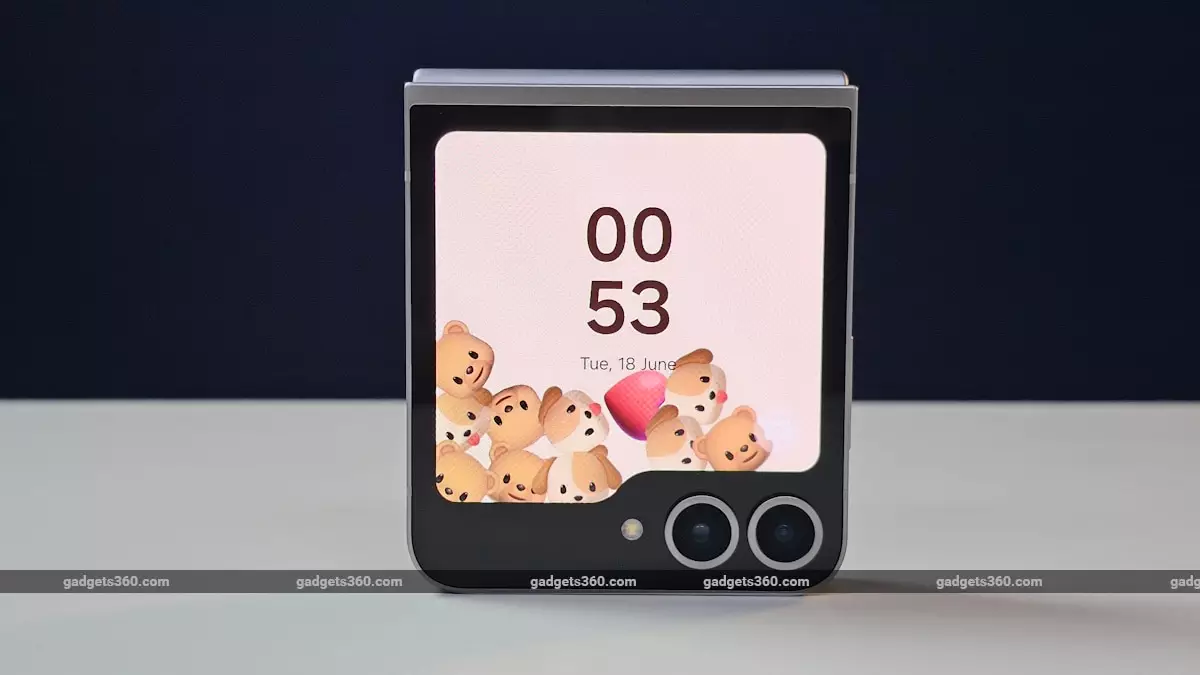The smartphone landscape has undergone profound transformations, particularly with the advent of foldable devices. Among them, Samsung’s Z Flip series has made waves, but the limitations in privacy during calls while the device is folded remain a notable obstacle. Samsung is initiating progressive changes in this arena by collaborating with LG to develop an innovative ear speaker that could fundamentally change user experience, especially in clamshell-style models.
Current iterations of the Galaxy Z Flip require users to flip the device open to engage in private conversations, limiting functionality when the device is closed. This transparency, while practical, can detract from user convenience in various settings—be it on public transport, in meetings, or other intimate situations. The limitations are more pronounced in clamshell-style designs, where compactness and discretion are paramount. The traditional mode of using the speaker for calls compromises user privacy, prompting a necessary reevaluation of how these devices can serve their users better.
Samsung’s collaboration with LG marks a pivotal shift towards integrating functionality into the very structure of the foldable device. By developing a new display technology that can replace the traditional ear speaker, they could pave the way for a better-integrated user experience. The innovation is not merely about replacing one component; it’s about reimagining how devices operate in tandem, enhancing both functionality and design.
The heart of this technological enhancement lies in piezoelectric technology. This method uses vibrations of the screen itself to produce sound, thereby negating the need for a physical speaker positioned separately. Instead of relying on conventional audio hardware, this new approach fuses the audio source with the display layers, creating a seamless audio experience. Such integration reduces the bulkiness typically associated with having a dedicated ear speaker, which, in turn, opens up valuable real estate within the device for other components—a critical factor in compact devices like clamshells.
This innovative approach can enable new possibilities for audio experiences in future Samsung foldables. With two distinct audio sources—one from the display and the traditional speaker—the user can place their ear on the cover display to have a private conversation without fully unfolding the device. This is a game-changer, particularly for users accustomed to swift interactions that safeguard their privacy.
While Samsung’s current endeavor aims for a new milestone in smartphone design, it isn’t the first to flirt with the concept of eliminating traditional speakers. Xiaomi’s Mi Mix, launched back in 2016, was arguably a precursor in adopting piezoelectric technology. Although it struggled with initial market penetration, the Mi Mix showcased how luxury and innovative designs could coalesce. Xiaomi’s attempt at a bezel-less smartphone provided insights into potential roadblocks and consumer preferences that Samsung can learn from, particularly in balancing style with functionality.
The evolution of audio technology in smartphones signifies a progressive shift towards more innovative designs that prioritize user experience. Samsung’s foray into versatile audio solutions reflects a growing willingness within the industry to rethink how we interact with our devices—considering both technological advancement and human behavioral patterns.
In light of these developments, Samsung is not simply enhancing its foldable offerings; it is setting the stage for a new era of smartphone interaction that values privacy and functionality. This initiative with LG marks an essential step forward in the foldable smartphone narrative. As the companies work towards a solution that harmonizes traditional expectations with novel technologies, the future appears promising for users who demand discretion without sacrificing the convenience of modern design. By incorporating newly developed piezoelectric technology, Samsung could bolster its reputation as an industry leader, potentially redefining what users should expect in their everyday smartphones.


Leave a Reply